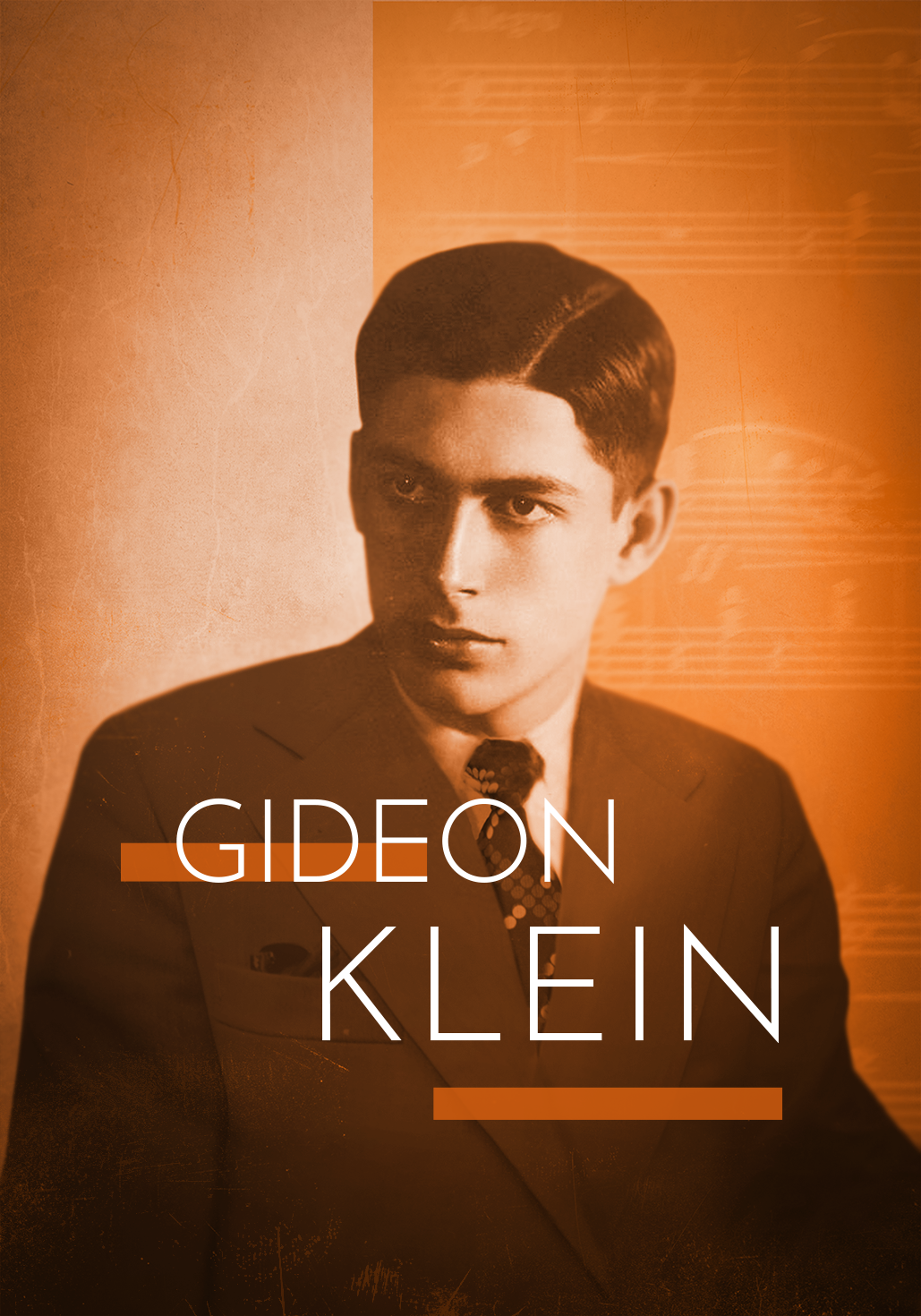6 XII 1919, Přerov (Moravia) — 27 I 1945, KL Fürstengrube
Biography
Gideon Klein was a pianist, composer, and educator. He received a scholarship from the Royal Academy of Music in London, but anti-Jewish regulations in German occupied Czechoslovakia, prevented him from traveling. He organized the cultural life in the Terezin Ghetto (Theresienstadt).
He was born on 6 December 1919 in Přerov, in today’s Czecha. His musical talent was evident from an early age. He began his musical education with Růžena Kurzova, and later participated in the master classes conducted by Vilém Kurz in Prague. He went on to study piano at the conservatory with Alois Hába. He was also a student of philosophy and musicology at the Charles University in Prague. When all universities in the Protectorate of Bohemia and Moravia (Nazi occupied Czechoslovakia) were closed, he continued to take private lessons.
As Jewish artists were banned from performing in public, Gideon Klein continued his career using pseudonyms. In 1940, he received a scholarship from the Royal Academy of Music in London, but he was unable to take advantage of this opportunity because of the anti-Jewish laws. One of his works is Divertimento, an octet for wind instruments, an expressive piece which reflects the political atmosphere of the times and its author’s artistic inspirations.
He was deported to the Terezín Ghetto (Theresienstadt) in December 1941 where, shortly after the arrival, he began to give concerts with other musicians, including Pavel Haas and Viktor Ullmann. He played in a piano trio and quartet and performed numerous times as a solo artist. He continued to compose music in the ghetto, creating pieces for a string quartet and a string trio, as well as piano sonatas. He also found time to teach piano for orphans in the ghetto. In October 1944, he was transported to the Auschwitz-Birkenau concentration camp and, later, to the Fürstengrube subcamp where he died in 1945.
—
Trio for Violin, Viola and Cello
Violin: Marcin Markowicz
Viola: Monika Młynarczyk
Cello: Jan Skopowski
Film: Piotr Bartos
Sound: Maciej Marchewka (Tibo Sound)
Recording from a concert at the White Stork Synagogue in Wroclaw, 9 November 2016.
Madrigal
—
Written in Theresienstadt in 1942.
Scans of the score were gifted to the exhibition by Terezin Memorial.
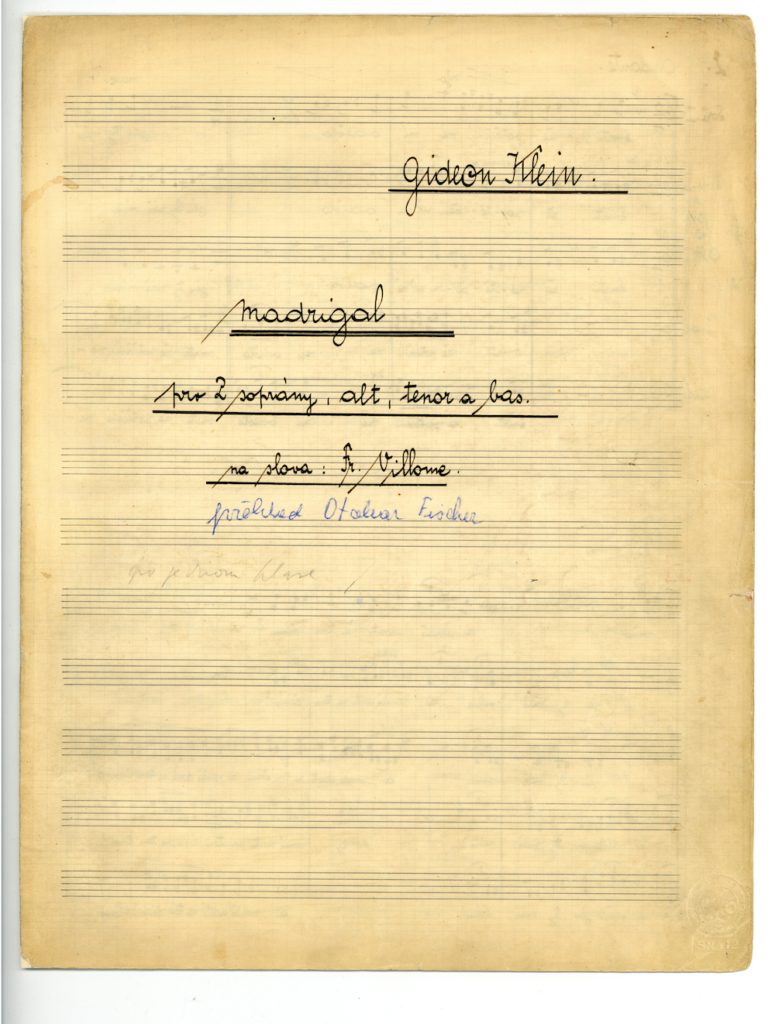
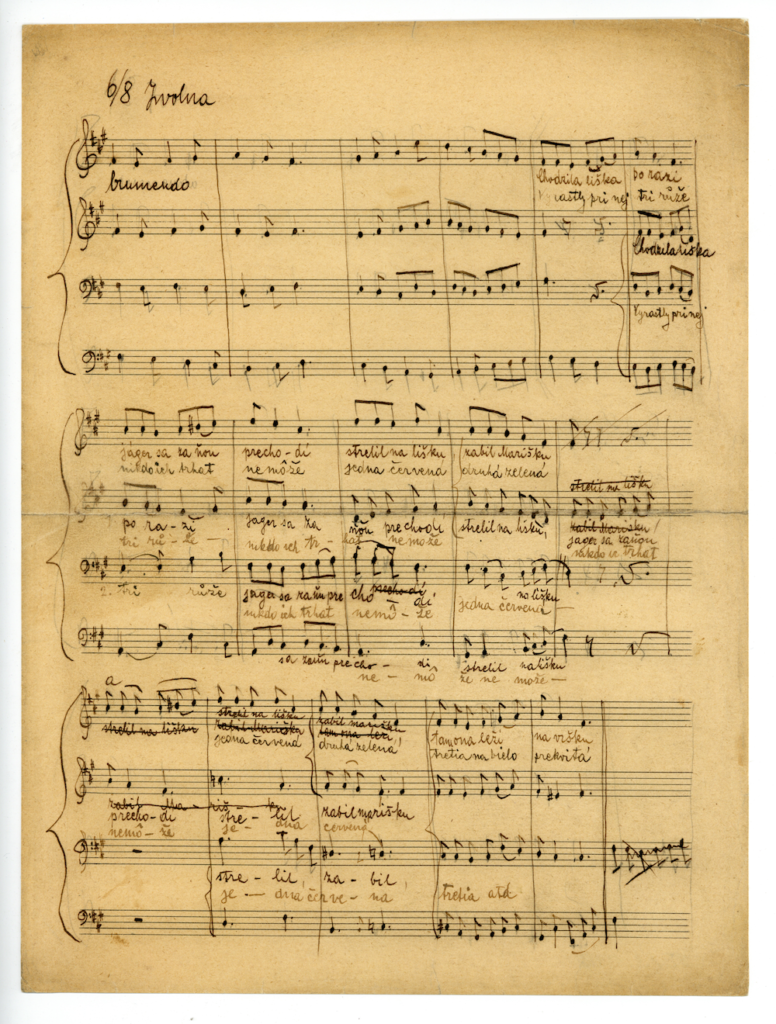
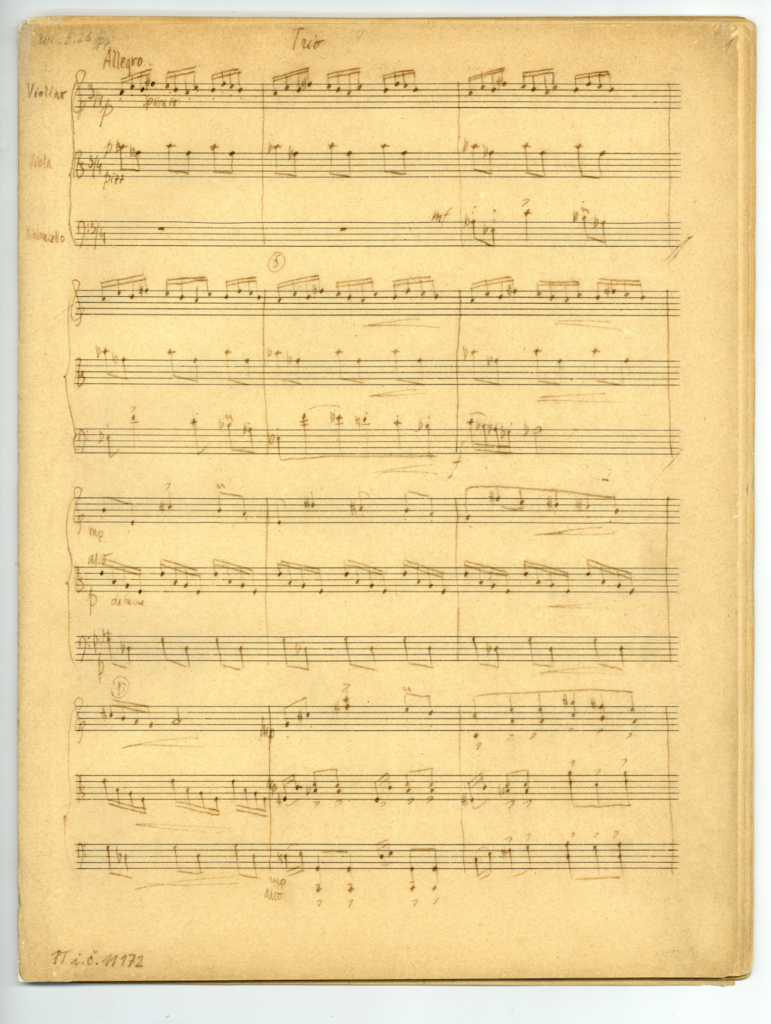
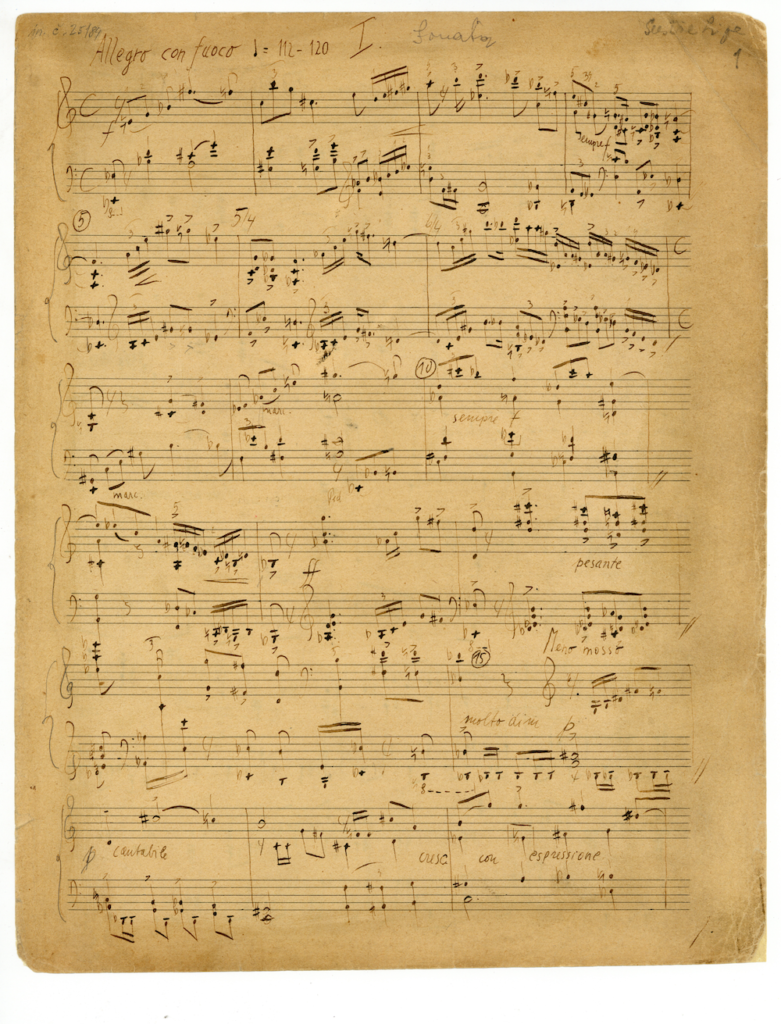
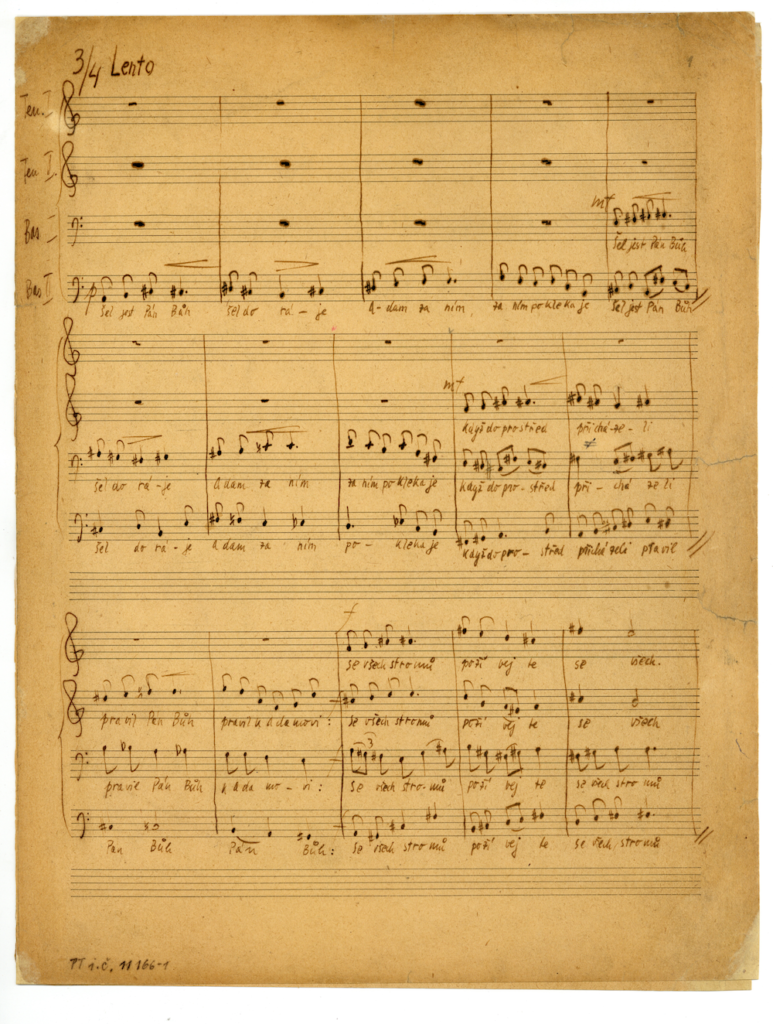
Composition for piano and a voice no. 2 (score)
—
Written in 1934, Prague to the lyrics of Otokar Březina.
Scans of the score were gifted to the exhibition by Terezin Memorial.
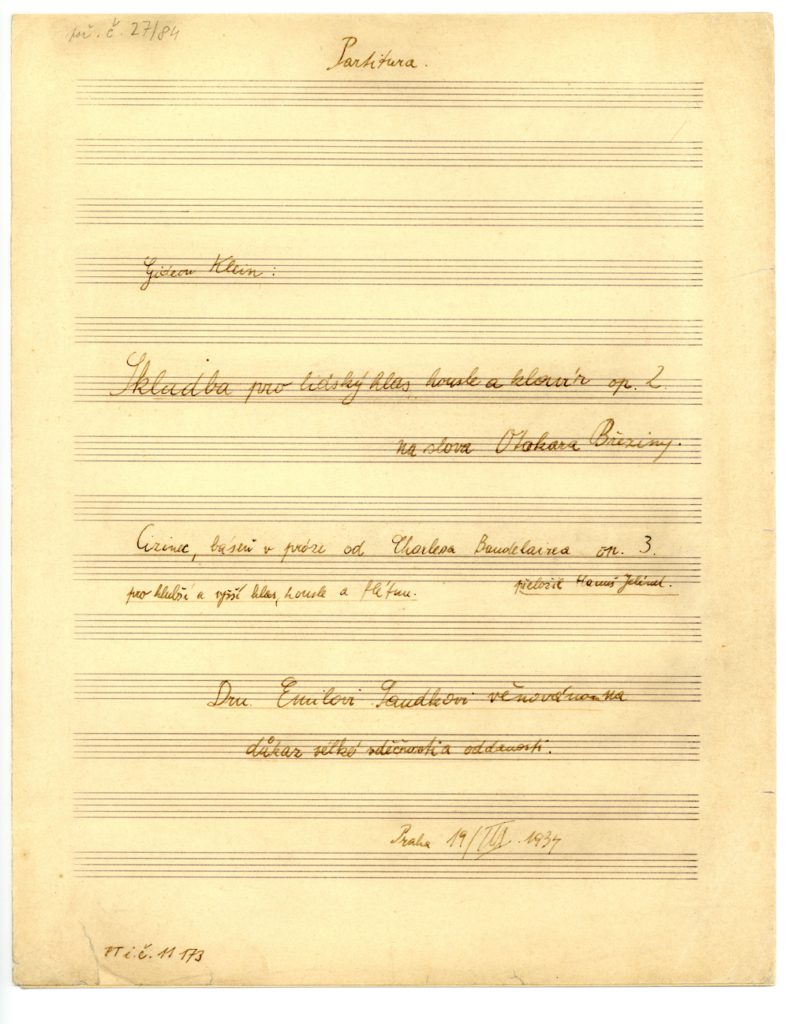
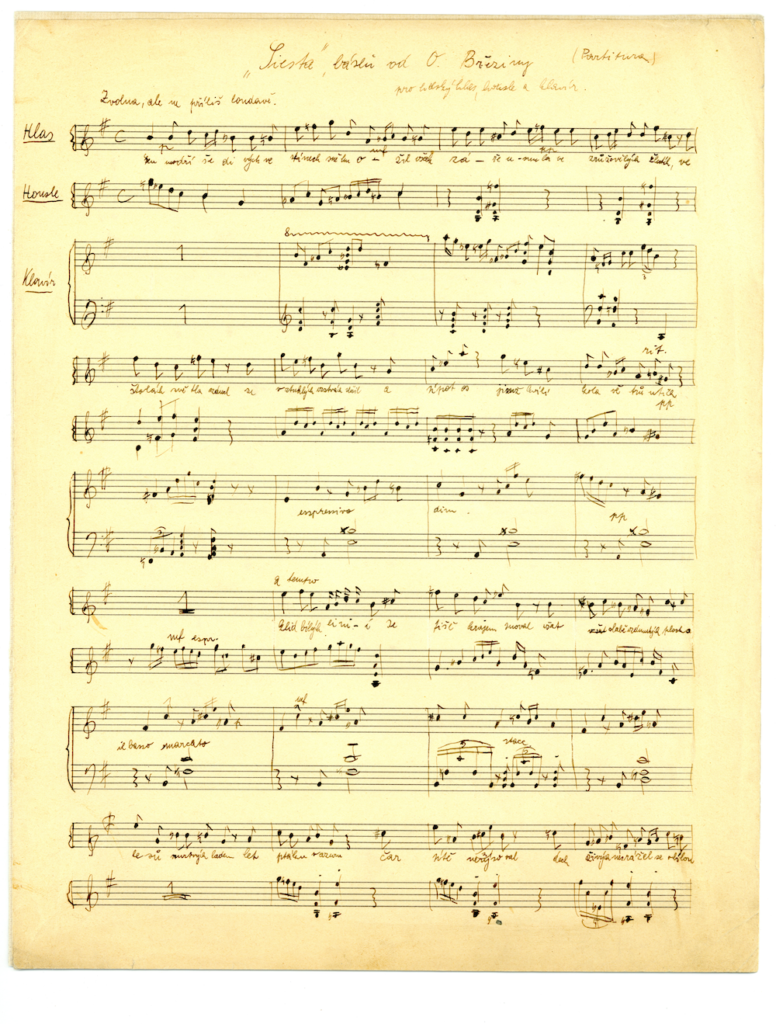
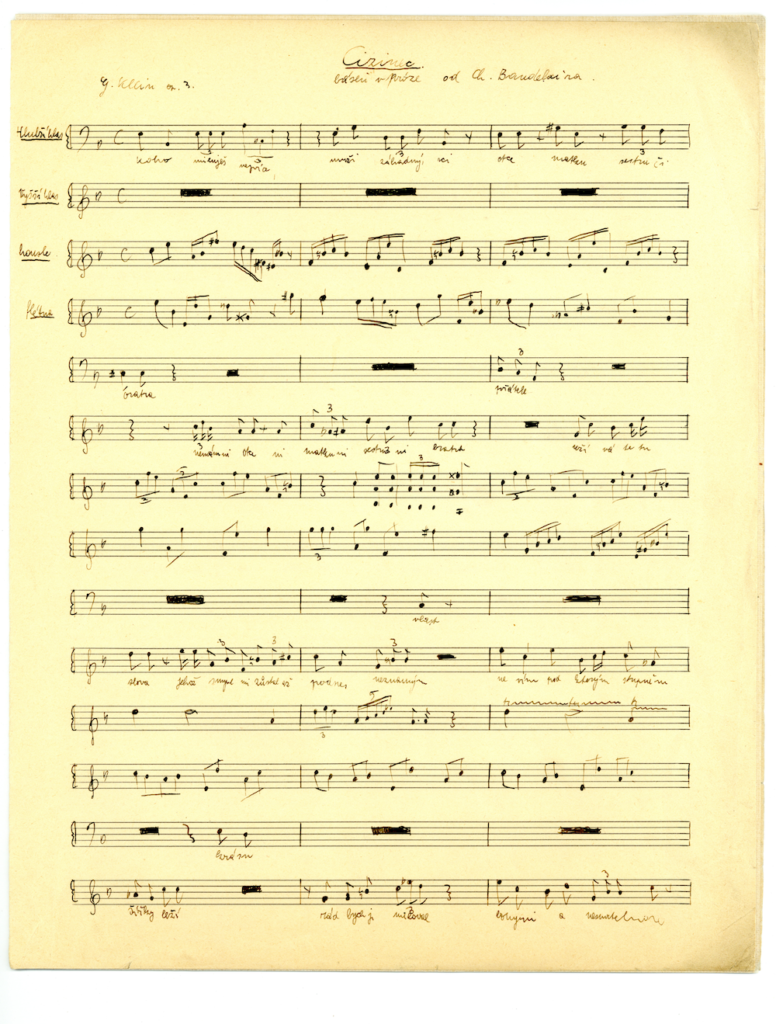
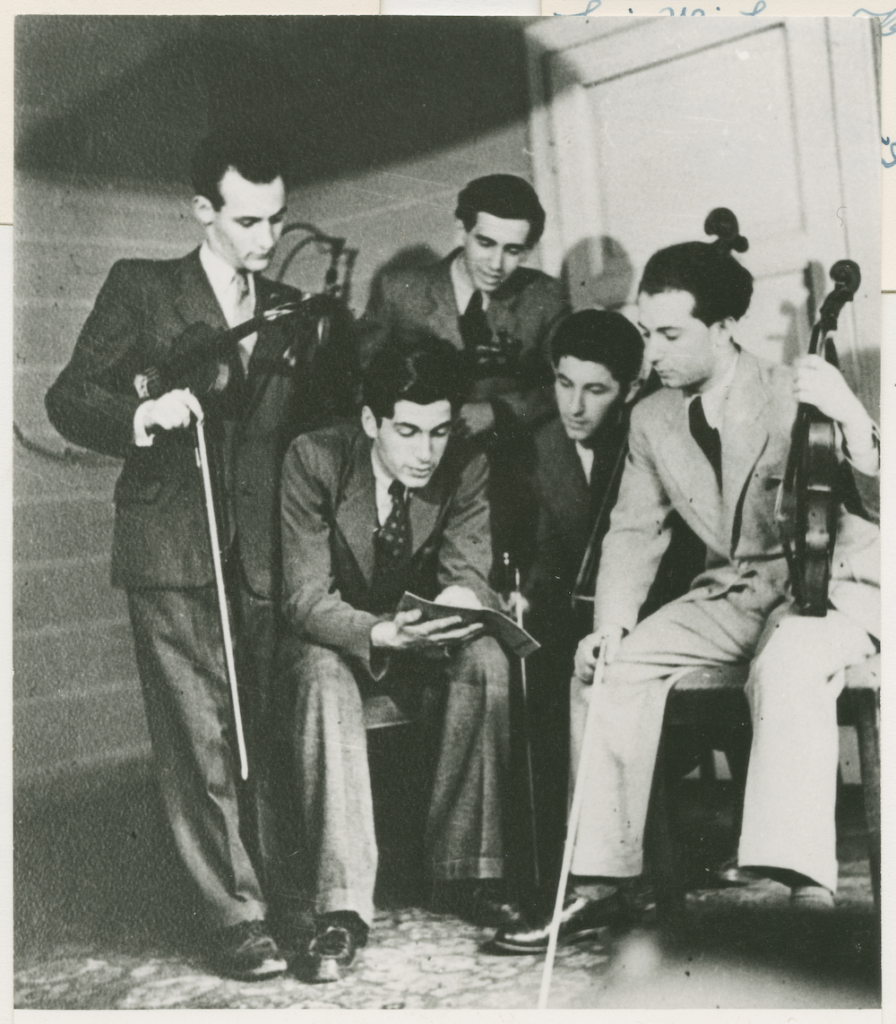
Photo of Gideon Klein, Louis Weinbaum, Heini Tausig, Fredy Mark, Karel Fröhlich
JMP Photo Archive, Neg. No. 081.570
The owner and copyright holder of the visual material is the Jewish Museum in Prague.
Gideon Klein was a pianist, composer, and educator. He received a scholarship from the Royal Academy of Music in London, but anti-Jewish regulations in German occupied Czechoslovakia, prevented him from traveling. He organized the cultural life in the Terezin Ghetto (Theresienstadt).
He was born on 6 December 1919 in Přerov, in today’s Czecha. His musical talent was evident from an early age. He began his musical education with Růžena Kurzova, and later participated in the master classes conducted by Vilém Kurz in Prague. He went on to study piano at the conservatory with Alois Hába. He was also a student of philosophy and musicology at the Charles University in Prague. When all universities in the Protectorate of Bohemia and Moravia (Nazi occupied Czechoslovakia) were closed, he continued to take private lessons.
As Jewish artists were banned from performing in public, Gideon Klein continued his career using pseudonyms. In 1940, he received a scholarship from the Royal Academy of Music in London, but he was unable to take advantage of this opportunity because of the anti-Jewish laws. One of his works is Divertimento, an octet for wind instruments, an expressive piece which reflects the political atmosphere of the times and its author’s artistic inspirations.
He was deported to the Terezín Ghetto (Theresienstadt) in December 1941 where, shortly after the arrival, he began to give concerts with other musicians, including Pavel Haas and Viktor Ullmann. He played in a piano trio and quartet and performed numerous times as a solo artist. He continued to compose music in the ghetto, creating pieces for a string quartet and a string trio, as well as piano sonatas. He also found time to teach piano for orphans in the ghetto. In October 1944, he was transported to the Auschwitz-Birkenau concentration camp and, later, to the Fürstengrube subcamp where he died in 1945.
